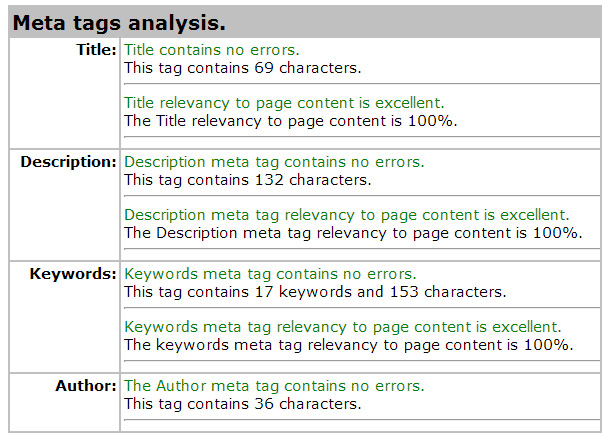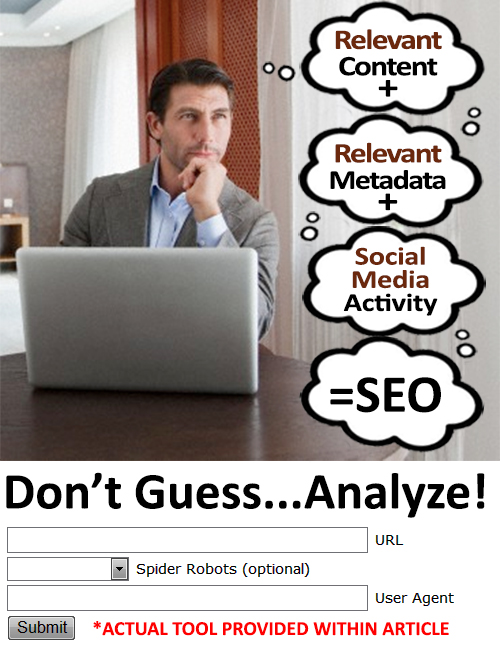In order to conquer meta elements and metadata, one must first understand what they are. Meta elements are an HTML or XHTML element used to provide structured metadata about a Web page. Metadata can be used to specify page description and keywords. These meta elements provide information about the web page, which can be used by search engines to help categorize the page correctly.
Early versions of search engine algorithms relied heavily on webmaster provided information such as the keyword meta tag, or index files in engines. As meta data and meta tags provide a guide to each page's content. While having properly orchestrated meta data is certainly a fundamental of search engine optimization, one should realize that each search engine possesses and implements their own set of search algorithms that are continuously changing. Though other factors such as social media activity and backlinking may add value to your website's "Search Engine Results Page" standings. One thing that will never change is if you wish to conquer SEO, you must still accomplish the fundamentals, the most important being "properly coded metadata"!
Meta tags remains to be the way webmasters communicate to search engines information about their sites. Many popular content management systems provide easy to use tools for you to enter in this metadata.
- Article Title
- Meta Description
- Keywords
These meta elements or metadata will always be important to search engine optimization because the Article Title and Meta Description is exactly what is shown to search engine users within their search engine results. The data is equally relevant to how Google will index this data.
SEO Metadata Trick#1: Relevancy and Harmony
The trick is to author your metadata to be in harmony with your articles content. Additionally, your article should be titled and written utilizing words or phrases that are likely to be search by your target audience. This requires some thought. The content which you author for your website should be valuable, accurate and most importantly original. Once you nail down these words and phrases, weave them into your articles content as frequently as possible (with out making it evident to a human reader that you are also targeting search spiders). This requires some tact. The more often you write, the better you will get at orchestrating the harmony which will result in copy write which is truly search engine optimized!
SEO Metadata Trick#2: Scoring your relevancy is not a guessing game!
As you author your articles content and metadata, you can systematically check your articles content versus metadata relevancy. The meta tag analyzing tool provided in this article will also offer suggestions of keywords and phrases based on your articles content. The goal is to achieve a 100% relevancy score so that Google and other search engines may find your content more valuable as it contains content and meta data that is truly in harmony. The image below is what an A+ score should look like.





